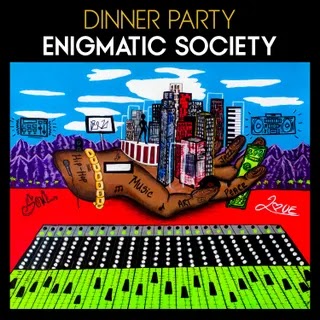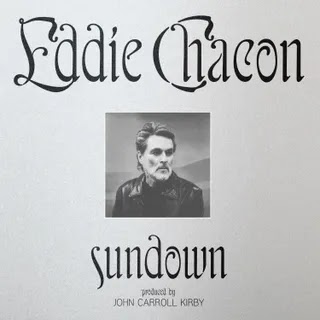To shed the stigma of “Friday,” Rebecca Black reinvents herself as a desperate hyperpop star.
Can a debut album be a comeback? I wish I could say that Let Her Burn is a scintillating and surprisingly poignant send-up of Rebecca Black’s image and history as a self-created subject of internet scorn, but sadly it is one of the most joyless and interminably dull pop records of the past few years—and confirmation that “Friday” is still the most interesting piece of music she’s ever made.
You can understand why Black felt the spotlight calling her back at this particular moment. We’re in the midst of an era when even the most commercially unsuccessful singer can rebrand as an alternative pop star and find a home on any number of gym playlists. Black is playing the game well: She relaunched her career in 2021 with an amusing, if somewhat thin, hyperpop remix of “Friday” produced by 100 gecs’ Dylan Brady and featuring Big Freedia, Dorian Electra, and the brotronica duo 3OH!3. A press release is stamped with identitarian bona fides (“queer-celebrated,” Mexican-American, “iconic queer creator,” and so on) and her new look is very much in vogue, leaning on Julia Fox-ish bodysuits, exaggerated makeup and jewelry, and Cronenberg-lite music videos. Watching the video for “Crumbs,” a breathier, less exciting retread of Tove Lo’s “Disco Tits,” you can practically hear the two-word brainstorm: It’s camp!
Sadly it is not. Let Her Burn is a desperate, bald-faced attempt to pull together whichever cultural signifiers seem likely to resonate with online fanbases. The entire album operates like this: “Destroy Me” is a cursory nod to emo-meets-d’n’b, à la Willow; “Doe Eyed” plays like Ariana Grande’s “just like magic” redone in the style of Charli XCX’s “claws”; multiple tracks deploy the kind of scraping, metallic synths that SOPHIE popularized and which Sam Smith and Kim Petras are busy running into the ground. All of this is paired with extraordinarily earnest but totally anonymous breakup lyrics—“I can’t erase you,” “My misery, it loves your company,” “There’s nothing you could do to make me love you less.”
In a sense, the triteness makes Let Her Burn an interesting cultural document. It’s proof that, in less than four years, hyperpop has gone from being a fun, hotly contested new microgenre to being a hacky shortcut into the zeitgeist. That’s the danger of building a scene with a deeply ironic sense of humor: It becomes nearly impossible to decide whether something is all part of the joke or simply capitalizing on an easily replicable sound. At some point, you have to ask yourself why you wouldn’t slap on a Rebecca Black album just for fun.
But Let Her Burn is so, so dry. Largely produced and written with MØ collaborator Stint and Micah Jasper, who worked on Slayyyter’s Troubled Paradise, Let Her Burn is bereft of the subversive and chaotic DIY energy that made hyperpop a destabilizing force. Black mostly sings in a breathy, affected deadpan that suggests heavy, anonymizing digital pitch-correction. It skirts the edges of being robotic and mostly ends up uncanny.
In 2011, Black fell victim to one of the earliest, and most intensely brain-numbing, cycles of internet discourse. First, of course, there was “Friday,” which was intensely mocked; then, there was the consideration that, perhaps, it was unfair to mock her; then, much later, came Black’s stint as an anti-bullying advocate. All the while, there were additional singles and TV appearances and splashy video cameos where you couldn’t tell if she was in on, or the butt of, the joke. She is a case study for the way that the internet exploits the young, innocent, and unself-aware. One could argue that, by releasing Let Her Burn—which carries the same clean, calculated “darkness” of classic I’m bad now 2000s pop records like Miley Cyrus’ Can’t Be Tamed—Black is reclaiming her image, seeking to exist in public on her own terms. Compared to, say, the TLC reality show hamster wheel or the Cameo ecosystem, hyperpop seems like a slightly less exploitative way for a D-list celeb to get another shot in the public eye. But far from an entryway into fertile new creative territory, Let Her Burn comes across as a means to a rebrand. It’s undeniable that Black has been through a lot, which makes it all the more bizarre that Let Her Burn, intellectually, musically, and spiritually, contains so little.
There are flashes of a slightly more interesting album. On “Destroy Me,” Black airs insecurities—“Don’t wanna be a loser/I wonder if I dye my hair/Will they think that I’m cooler?”—with an unadorned frankness that makes you wonder, a little, about who she is beyond a singer who had a minor YouTube hit with “Friday” and then, a little while later, a minor Billboard hit with follow-up “Saturday.” “Sick to My Stomach,” one of a couple of more traditional, ’80s-inflected songs on the album, will satiate anyone holding out for The Loneliest Time Side B, as will “Look at You”—although “Everybody’s got that somebody that fucks you up” is the kind of clunker not even Carly Rae Jepsen would touch.
Black, at least, seems to have a shred of self-awareness about the whole thing. On Let Her Burn’s final track, “Performer,” she sings about struggling to open up: “Every time I try to be more vulnerable/It’s like I hit a wall/Can’t go any further.” It is ostensibly not meant to be taken literally, but after an album on which she struggles to convincingly muster the anarchic spark of hyperpop or the wounded pathos of a classic breakup record, it might as well be true.
















0 comments:
Post a Comment